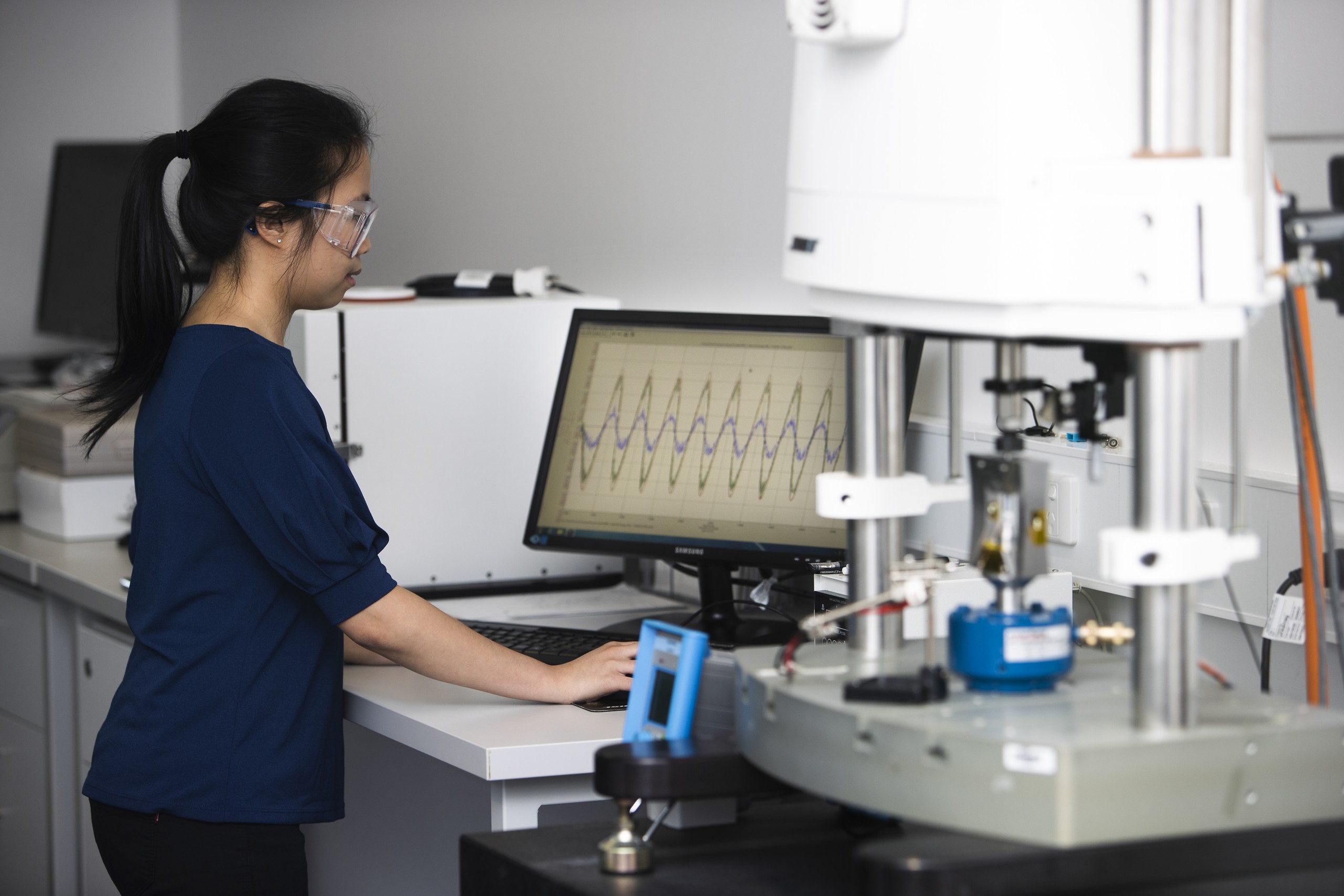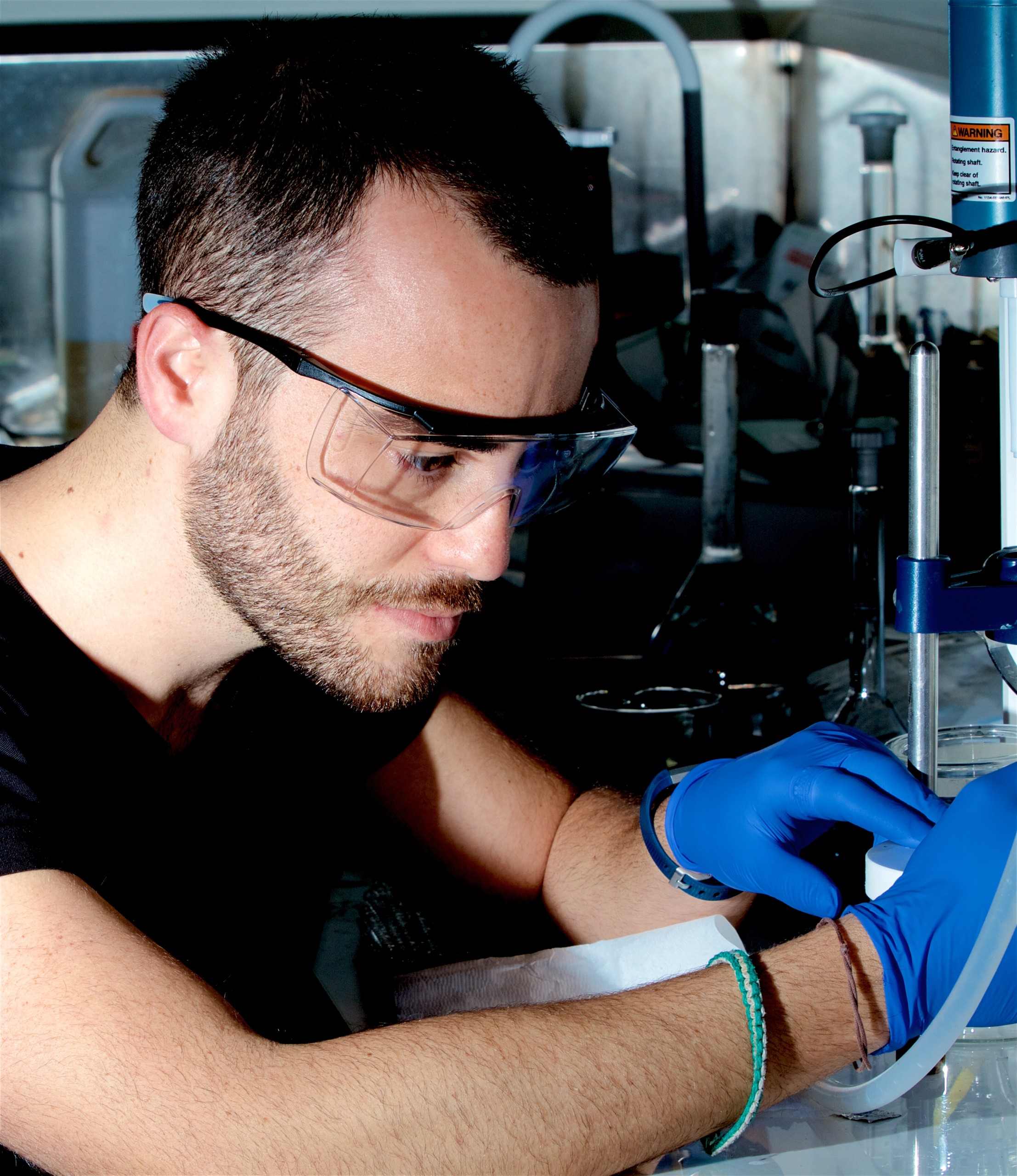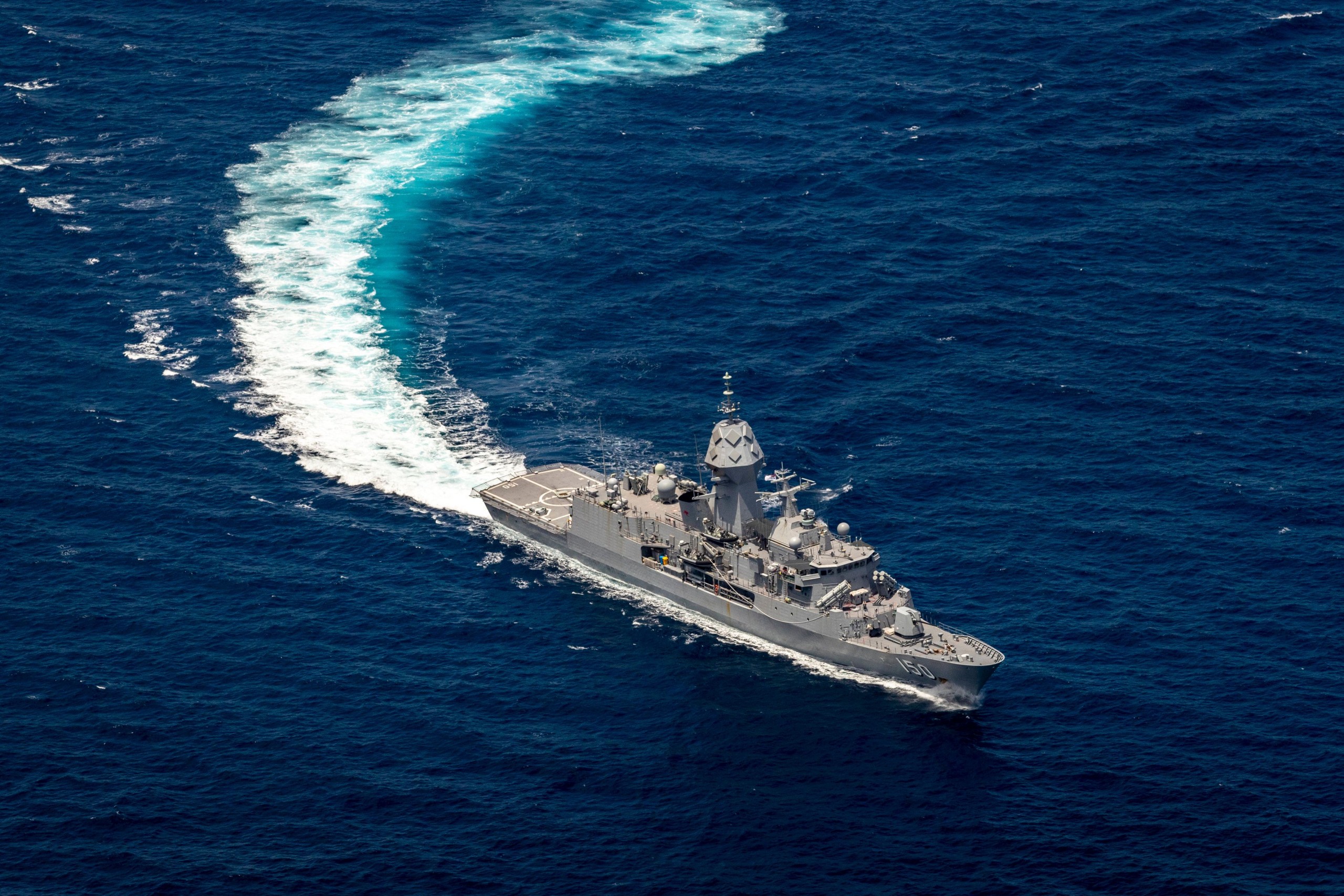Celebrating Collaborative Research
Where are they now: Dr Scarlet Kong and Dr. Alain Moriana
Through its Education portfolio, DMTC is committed to boosting the pipeline of young, innovative Australians who can progress from academia to applied research and on to employment in defence industry or related fields of industry and ongoing research. In a series of interviews with several exemplary former participants in our Education program, we explore how support from DMTC has impacted their career trajectory.
A first-of-its-kind opportunity for PhD project collaboration
Recently, DMTC reached out to Dr Scarlet Kong (PhD completed at the University of New South Wales) and Dr Alain Moriana (PhD completed at the University of Wollongong) to discuss their research into next-generation piezoelectric materials. Piezoelectrics are materials that produce an electrical charge when mechanically stressed or, alternatively, materials that change shape when electricity is applied to them. These materials have a breadth of strategic applications, particularly in the defence and national security sector. As such, Scarlet and Alain’s research joins a body of work that promises order-of-magnitude capability gains in areas such as undersea surveillance and sonar systems.
Unique aspects of Scarlet and Alain’s respective PhD projects were, first, the interrelationship between topics of research and, second, the substantial academic and industry collaboration throughout. Not only did Scarlet and Alain’s complementary projects bring together their respective universities but also contributions from Thales Australia Limited, Thales Defence Mission Systems and Thales Research and Technology (France) – embodying the best of DMTC’s ‘capability through collaboration’ approach to defence industry research and development.
Focusing on a complex and emerging class of textured ceramic materials, Alain’s research explored ‘the manufacturability of textured piezoelectric ceramics on a large scale as an alternative to single crystal growth,’ in order to target improvements in the versatility of textured piezoelectric ceramics used in undersea surveillance and SONAR systems.
Upon the production and measurement of such materials, Alain would transfer his samples to Scarlet whose research focused on how changes to a piezoelectric material’s microstructure ‘affects its shape changing response and how this response can be maximised to reduce the power requirements of sonar systems, while also improving their sensitivity range.’ As a result, this collaborative PhD project gave participating academic institutions and industry partners extensive insights into next-generation piezoelectric materials for defence applications. You can read more of Scarlet and Alain’s research here and here.
A great benefit of the reciprocal nature of Scarlet and Alain’s research was the opportunity it gave for both to travel to France in 2019 to visit the facilities of Thales Defence Mission Systems and Research & Technology. This allowed for even greater professional and academic development, with both students learning from Thales’ expertise, expanding their industry networks, and presenting some of their own findings. Travels did not end there however, with DMTC supporting Alain to present his research as an invited speaker at the 19th International Conference on Crystal Growth and Epitaxy (ICCGE-19) in Colorado, USA. For Scarlet, this is indicative of one of the assets of DMTC’s Education program: ‘completing a PhD with DMTC exposed me to a wealth of knowledge and opened many pathways to explore while I was still a student.’
Scarlet and Alain praised the convivial and supportive DMTC community for assisting them over the course of their PhDs. Scarlet credits key insights from DMTC, industry and research leaders with instilling a holistic understanding of her work, enabling Scarlet to reflect on ‘why my PhD studies were relevant and important to industry and government partners’.

Scarlet and Alain’s collaborative research project provided key insights into next-generation piezoelectric materials for defence applications.
Luckily for DMTC, after completing her PhD Scarlet took on a role of within DMTC’s Maritime program, with a focus on Advanced Piezoelectric Materials and Applications (APMA). The APMA program represents a coordinated, long-term vision to establish a strategic national capability in advanced piezoelectrics. Extending along the entire production pipeline, the APMA program covers education and training, research and development, and will ultimately provide Australian industry with a world-leading capability to design and fabricate sonar materials.
After graduating in December of 2021, Alain commenced a postdoctoral fellowship with the Australian Nuclear Science and Technology Organisation (ANSTO) and Thales to begin production of single crystals via the solid-state growth process. ‘My work with DMTC helped prepare me by balancing academic and scientific study with the demands and requirements of industrial use for a larger market.’ Alain’s work continues to contribute to our APMA program and DMTC is excited to collaborating with ANSTO and Thales on these critical capabilities.

Alain has commenced a postdoctoral fellowship with ANSTO and Thales to begin production of single crystals via the solid-state growth process.
